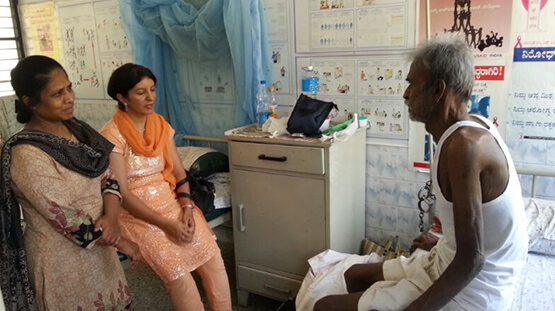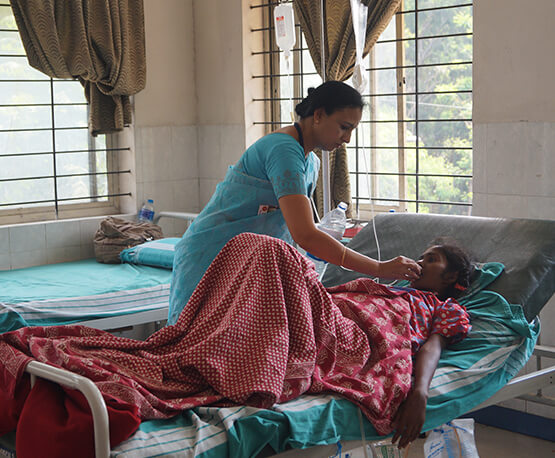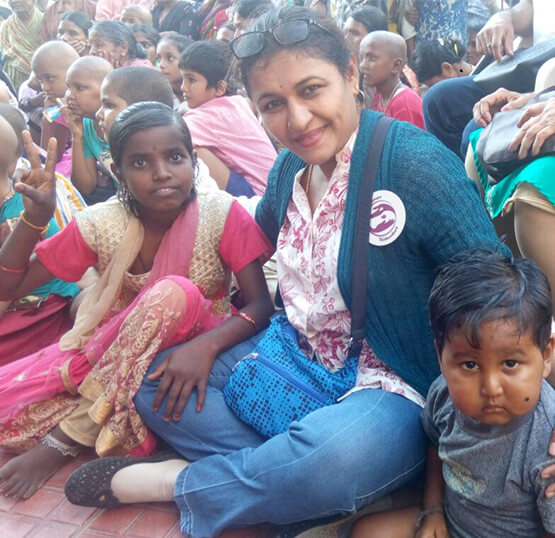
Palliative Care
Palliative care is the care given to patients suffering from a terminal illness. The focus is to alleviate their suffering and improve their quality of life until they pass on. Palliative care allows for a peaceful and dignified death. Patients’ family members who are the primary care givers also need such support.
“ You matter because you are you and
you matter till the end of your life”
-Dame Cicely Saunders
(Founder of the Hospice movement)
Palliative care is an approach that improves the quality of life of patients and their families facing the problem associated with life-threatening illness, through the prevention and relief of suffering by means of early identification and impeccable assessment and treatment of pain and other problems that are physical, psychosocial and spiritual – Definition of Palliative Care – World Health Organisation
What is Palliative care?
- Provides relief from pain and other distressing symptoms;
- Affirms life and regards dying as a normal process;
- Intends neither to hasten or postpone death;
- Integrates the psychological and spiritual aspects of patient care;
- Offers a support system to help patients live as actively as possible until death;
- Offers a support system to help the family cope during the patients' illness and in their own bereavement;
- Uses a team approach to address the needs of patients and their families, including bereavement counselling, if indicated;
- Will enhance quality of life, and may also positively influence the course of illness;
- Is applicable early in the course of illness, in conjunction with other therapies that are intended to prolong life, such as chemotherapy or radiation therapy, and includes those investigations needed to better understand and manage distressing clinical complications.
Courtesy: World Health Organisation

Who needs Palliative care?
Palliative care is needed not just for incurable cancer patients, but also for those who face chronic end-stage medical illnesses like that of heart, lung, and central nervous system. Neuro-muscular disease, end-stage renal failure and frail, elderly and other people dying of AIDS also need palliative care. The high incidence of cancer alone is prevalent amongst all strata of society. Patients and their families who are the primary care givers also need palliative care support.
There is a huge need for palliative care in India and there needs to be a lot more awareness about palliative care.
Palliative care for children
Children diagnosed early with a chronic disease can be cured with Curative care. If unfortunately they are diagnosed at a late stage of a disease like cancer, then they will require palliative care.

WHO Definition of Palliative Care for Children
Palliative care for children represents a special, albeit closely related field to adult palliative care. WHO’s definition of palliative care appropriate for children and their families is as follows;
- Palliative care for children is the active total care of the child’s body, mind and spirit, and also involves giving support to the family.
- It begins when illness is diagnosed, and continues regardless of whether or not a child receives treatment directed at the disease.
- Health providers must evaluate and alleviate a child’s physical, psychological, and social distress.
- Effective palliative care requires a broad multidisciplinary approach that includes the family and makes use of available community resources; it can be successfully implemented even if resources are limited.
- It can be provided in tertiary care facilities, in community health centres and even in children’s homes.
